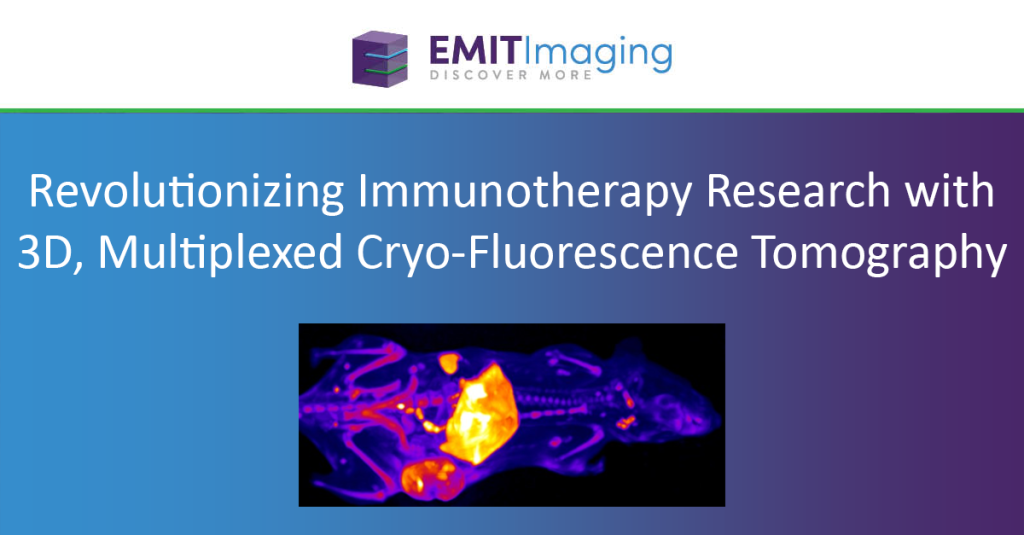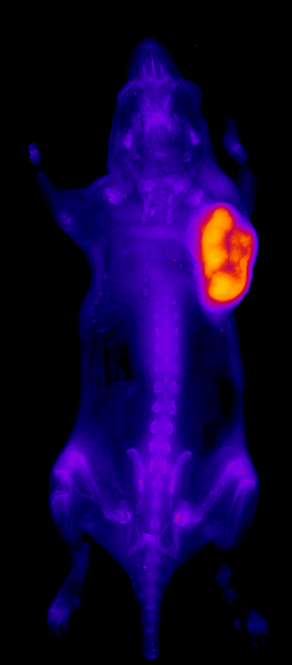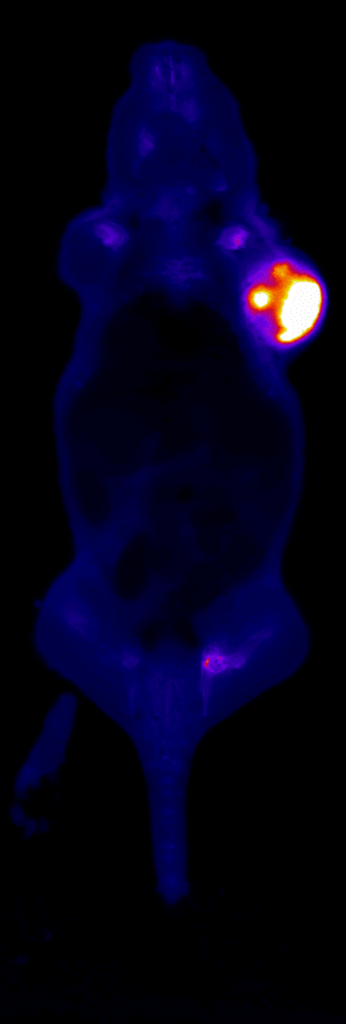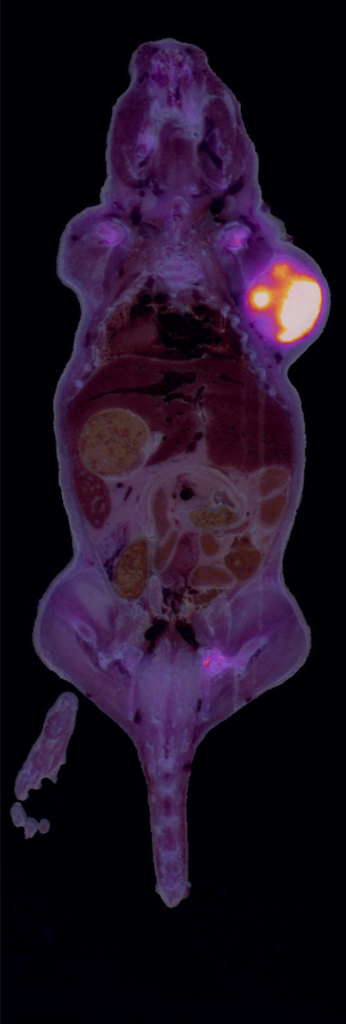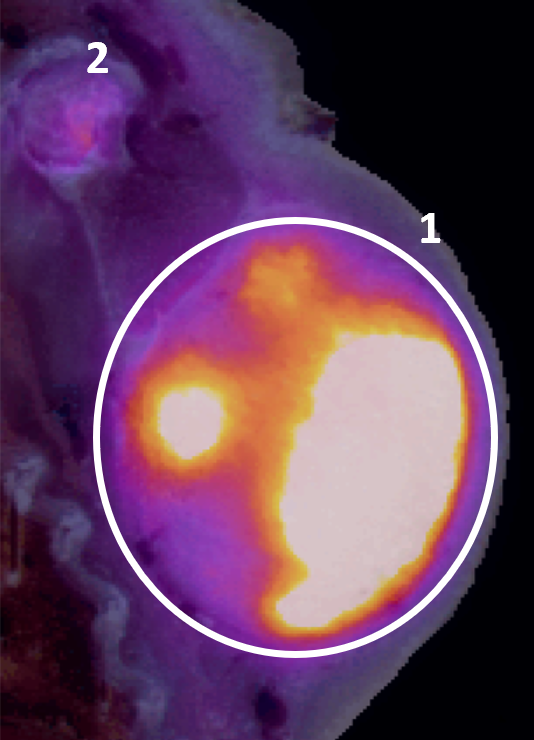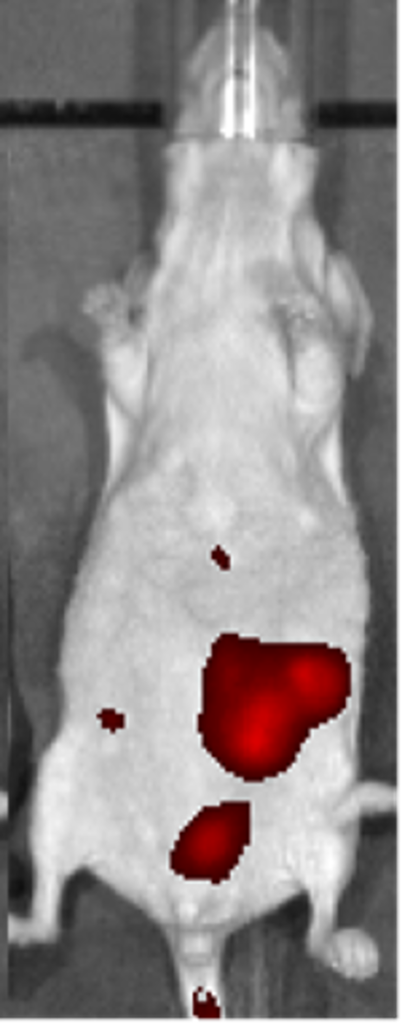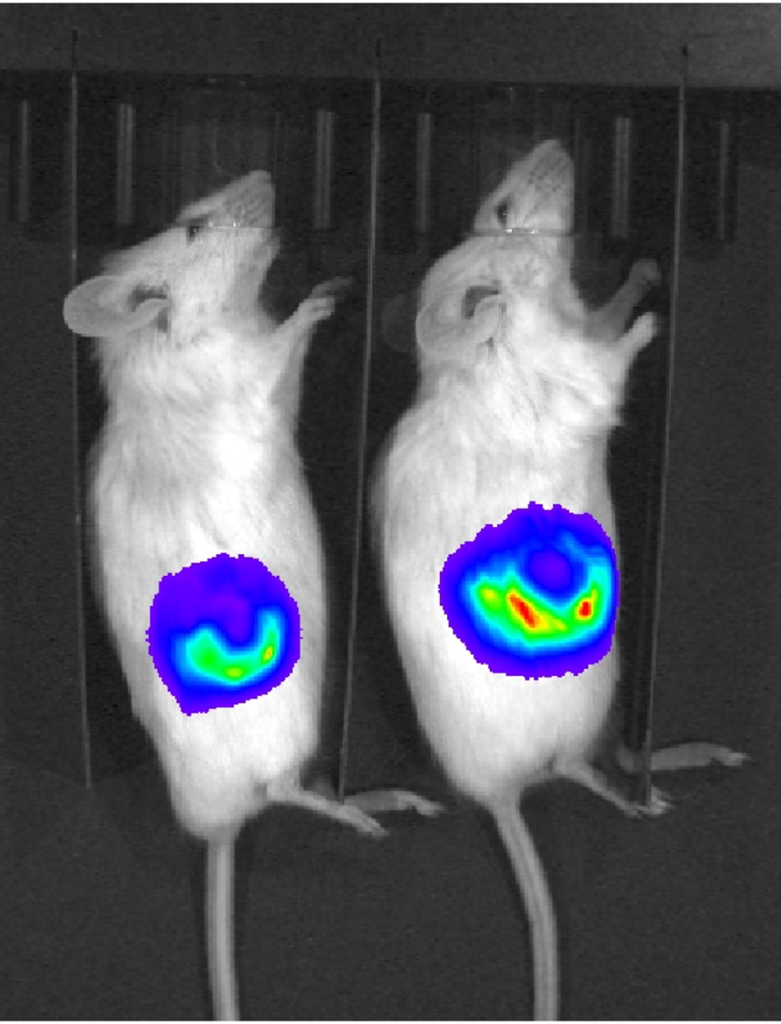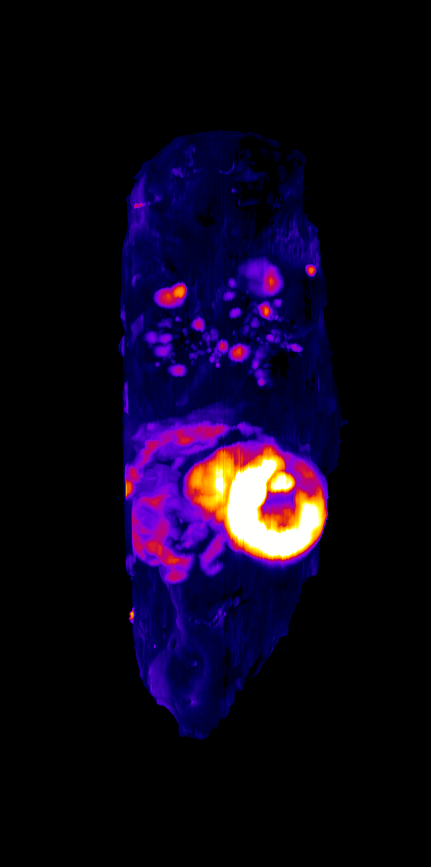CFT in Oncology and Immunotherapy Research
Cryo-Fluorescence Tomography (CFT) and EMIT Imaging’s flagship platform Xerra™ are powerful techniques for oncology and immunotherapy applications. CFT provides anatomical & 3D fluorescence images to help researchers to discover more when studying tumor models including microenvironments, tumor heterogeneity, metastatic spread, and expression of specific biomarkers.
For metastatic tumor progression, CFT detects metastatic disease and provides high resolution 3D molecular data of tumor burden and spread, not typically visualized in other image modalities. In addition, CFT is used to evaluate tumor metabolism and cell biology in response to genetic manipulations, pharmacologic agents, and cancer chemotherapy drugs.
Example: Whole Body Drug Biodistribution
Fibroblast-Activation Protein
Findings: Data confirms drug preferential uptake in the tumor with minimal uptake in other organs/tissues
Details:
- 1ug dose of ZW800-1-labeled FAP-targeting small molecule
- U87 xenograft
- 4hrs post iv administration
- Imaged at 35 µm

Copyright 2023 Ratio Therapeutics Inc., used with permission
Example: Co-localization of Tumor and Drug
Comparison of FLI and CFT
Findings: CFT shows high-resolution, 3D co-localization of tumor cells and drugs, complementing and expanding 2D in vivo imaging
Details
- Orthotopic ovarian cancer model with tdTomato-expressing cells
- Injected HER2-targeted antibody labeled with AF647
Example: Understanding of Disease Models
Comparison of BLI and CFT
Findings: CFT image shows the primary tumor extent and heterogeneity as well as the metastatic lesions in the lungs
Details:
- MDA-MB-231 human breast adenocarcinoma cells were engineered to express both firefly luciferase and DsRed
- The in vivo bioluminescence image shows the flank tumor and can be used to track progression
DsRed mice provided by John Ronald, Robarts Research Institute

